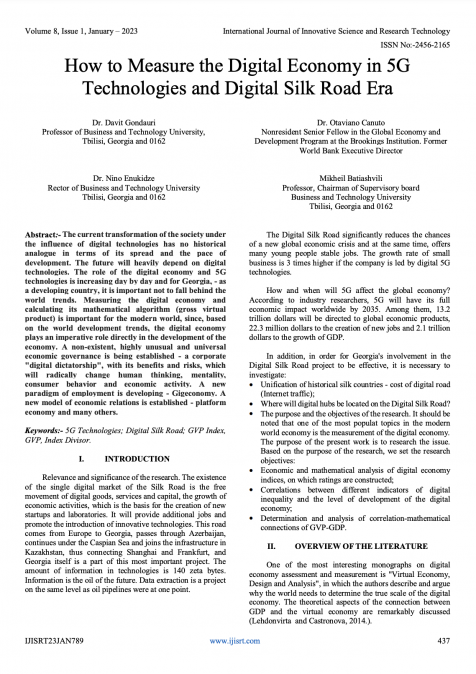Publications /
Paper in Academic Journals
This publication was originally published in https://ijisrt.com/assets/upload/files/IJISRT23JAN789.pdf
The current transformation of the society under the influence of digital technologies has no historical analogue in terms of its spread and the pace of development. The future will heavily depend on digital technologies. The role of the digital economy and 5G technologies is increasing day by day and for Georgia, - as a developing country, it is important not to fall behind the world trends. Measuring the digital economy and calculating its mathematical algorithm (gross virtual product) is important for the modern world, since, based on the world development trends, the digital economy plays an imperative role directly in the development of the economy. A non-existent, highly unusual and universal economic governance is being established - a corporate "digital dictatorship", with its benefits and risks, which will radically change human thinking, mentality, consumer behavior and economic activity. A new paradigm of employment is developing - Gigeconomy. A new model of economic relations is established - platform economy and many others.










